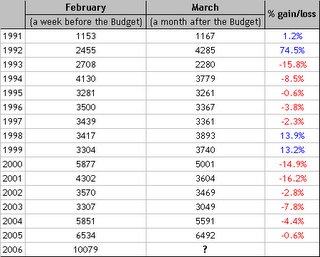Your house has a p/e ratio too. Shocked, well not if you know your finance well. A p/e ratio or price (you pay)-to-earnings (net profit per year) ratio simply put is -
- a ratio that tells you that the number of years it will take for the asset in question to earn you back your initial investment.
A more simpler explanation can be given by looking at a fixed deposit at a bank. Lets say Mr.X deposits Rs.100,000 with the State Bank of India at an annual interest rate of 10% (or in this case it would be Rs.10,000 per annum). The p/e ratio of this bank deposit will thus be 100,000/10,000 = 10 times. A simple math would also tell you that given the rate at which you earn your net income (assuming no re-investment), the deposit should earn you the initial investment (Rs.100,000) in 10 years. Thus, any asset that has an earning stream can be valued by its p/e ratio. Lower the p/e ratio, quicker will you earn your investment back. Value stocks are usually defined as the ones with lower p/e ratios. One of the important principles of Benjamin Graham was investing in stocks with low p/e ratios.
Coming back to the example of a house that has a capability of earning a rent. So for example, a house that costs - Rs.10,000,000 and can earn an annual rent of Rs.500,000 then it is said to be quoting at a p/e ratio of 20 times.
I read an interesting paper on valuation of investments in homes. Here is a small extract from the paper -
You may not think about it when you buy a house, but it’s the same thing. The price you pay should reflect the present value of future rent. You should go through the same mental calculation in purchasing a home as in purchasing a stock. Ask yourself how much the house could currently be rented for on an annual basis. Divide the seller’s asking price by this rental number. That’s the p/e ratio, the ratio of price to earnings. If a $500,000 house could generate $25,000 in annual rental earnings net of maintenance and management, then the p/e ratio is 20. I know it’s hard to think this way. Unlike stocks, investments in homes do not come with quarterly earnings statements. Unlike stocks, the price of your home is not listed in the Wall Street Journal every day, which allows you to keep it on your books at whatever price suits your current mood.You can download this paper from here. I had prepared a small presentation on p/e ratios and how growth in earnings affect p/e ratios. You may find it useful.






